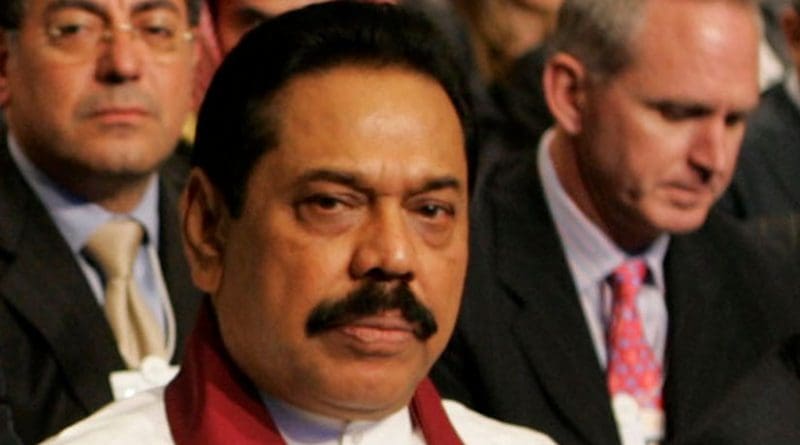Sri Lanka: Activists Allege Political Involvement In Riots
By UCA News
Rights groups have accused former Sri Lankan president Mahinda Rajapaksa and his supporters of being behind recent anti-Muslim riots.
Attacks on Muslims took place immediately after local council elections contested by Rajapaksa’s newly formed Sri Lanka Podujana Peramuna (SLPP).
The government on March 6 declared a nationwide state of emergency after two people were killed and nearly 450 Muslim homes and shops were damaged in the central Kandy region.
During the violence, more than 20 mosques were attacked.
The death of a Sinhalese lorry driver was said to have triggered the mayhem, but there were tensions in southeastern Ampara beforehand.
Anti-Muslim violence likewise erupted after rumors that birth control pills were being served in Muslim restaurants to Sinhalese customers.
Although the claim was false, it inflamed fears of a conspiracy to reduce the Sinhalese population.
Cadar Nijam, a human rights activist and local council member, said CCTV footage highlighted the role of SLPP members.
SLPP member Gamini Rajapaksa and several supporters were arrested following examination of camera recordings of an attack on the Manikhinna mosque.
“SLPP members joined with the mobs to get political advantage,” said Nijam, who is from Kandy.
Other SLPP members and supporters involved had still not been arrested.
The police should arrest big-name politicians who engineered the unrest, Nijam said, but he added victims suspected the instigators were being protected by police.
He urged Muslims to come forward with more video or other evidence relating to the attacks.
The human rights defender said Rajapaksa’s regime had used Buddhist extremist groups in an attempt to retain power. However, the dangerous repercussions were now evident.
In recent years, hard-line Buddhist groups including Mahasohon Balakaya and Bodu Bala Sena have preached hatred against the Muslim population.
Muslim religious leaders have handed over a document to the parliament calling for measures to avoid further anti-Muslim attacks.
Cabinet spokesperson Rajitha Senaratne said two Buddhist monks had been arrested in connection with the violence.
Some victims said a lethargic police response allowed Sinhalese Buddhist mobs to create havoc.
Rajapaksa denied that his party was involved.
Meanwhile, Bodu Bala Sena general secretary Galagoda Aththe Gnanasara Thera visited arrested activists last weekend.
Catholic priest Father Nandana Manathunga, director of Kandy’s Human Rights Office, said the rioting did not come as a surprise.
The office of militant Mahasohon Balakaya was well established in Kandy.
“This was a well-organized attack and their activities were happening for a long time,” said Father Nandana.
Both Mahasohon Balakaya and Bodu Bala Sena were created and funded by politicians, he said.
Buddhist activists knew the religions of villagers, he added. “Several times I informed police about these groups,” the priest said.
A sign proclaiming Mahasohon Balakaya’s general secretariat was removed after the rioting. “But they still exist,” Father Nandana said.

